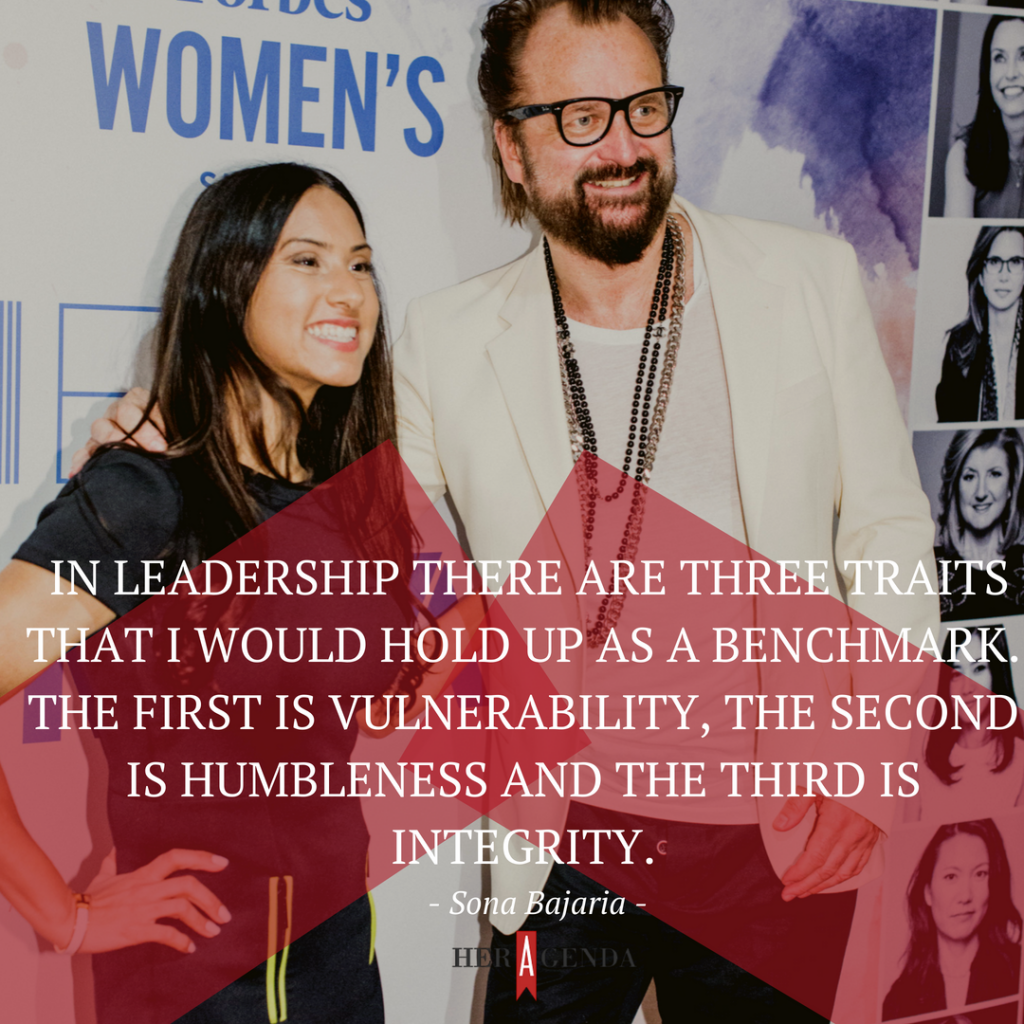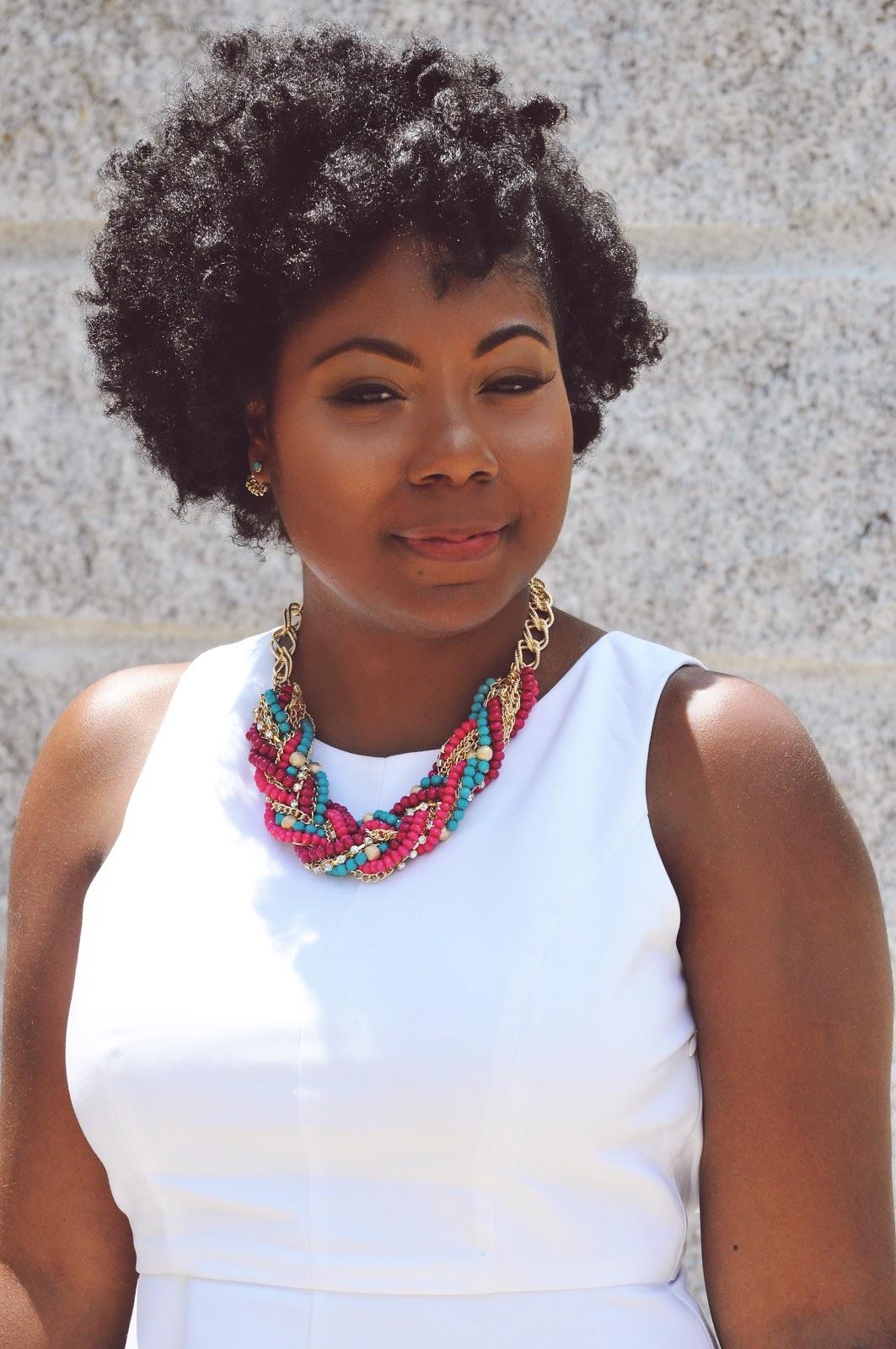The spirits industry has long catered to men. From advertisements, to marketing campaigns, to even the names on the bottle have long been directed toward men. Now that narrative is starting to change. Women are moving to the forefront of the spirits industry on many levels. More women are becoming distillers, executives and even consumers. In fact a consulting group told the Los Angeles Times women make around 70 percent of alcohol purchase decisions.
One such change agent is Sona Bajaria. Sona Bajaria is the Vice President of Marketing for The Glenlivet and High-End Irish Whiskies at Pernod Ricard USA. Most recently, Sona spearheaded a powerful new brand repositioning for The Glenlivet single malt whiskey. This repositioning aims to challenge assumptions and values that are no longer relevant in today’s modern world. Her Agenda recently spoke with Sona about what it takes to be a leader and how the spirit industry is becoming more inclusive.
Her Agenda: The spirits industry is not a place where we typically see women gravitate toward. Did you always know you wanted to work in the spirit industry?
Sona Bajaria: I always knew that I wanted to work in a space that had a lot to do with people and human behavior, but my passion has always been with marketing. A series of things have brought me to the spirit industry but to be honest I didn’t paint this picture as a young girl. I landed at Pernod Ricard eight years ago I am very fortunate to be here. It was all about being in a marketing space that was functional and had an emotional benefit. Pernod Ricard struck the right balance between the two. What has kept me here at this company is that you can be a change agent and [have] the ability to build a platform.
!["When assumptions in society are challenged and stereotypes are [broken], then conventions are dismantled." -Sona Bajaria](https://media.heragenda.com/brand-img/8124/0x0/wp-content/uploads/2018/09/5-2-1024x1024.png)
Her Agenda: The spirit industry is a male-dominated industry. How is the industry becoming more inclusive?
Sona Bajaria: Pernod Ricard is leading in the growth of women leaders in the spirit industry. Our percentage of female managers continues to grow. In fact, women accounted for a third of Pernod Ricard’s managerial staff at the end of 2016. Diversity is a massive focus for this company. What is exciting is being able to work on a brand that is trying to swing the pendulum more towards the center and take a category that is perceived to be elitist, closed off and masculine and really open it up. It’s still continuing to target men but also opening it up to the reality of the fact that women are enjoying more brown spirits. When assumptions in society are challenged and stereotypes are [broken], then conventions are dismantled. We launched a new product which is actually the best performing innovation in the single malt category in the last couple of years (The Glenlivet Founders Reserve.) We found that over 50 percent of the drinkers were women. The category average is around 30- 35 percent. This response has really inspired us to continue to challenge the traditional perception of single malt [whiskey]. It is a lot of fun to see the way that consumers today are engaging with the brand.

Her Agenda: How would you define leadership and what advice do you have for aspiring women leaders?
Sona Bajaria: In leadership there are three traits that I would hold up as a benchmark. The first is vulnerability, the second is humbleness and the third is integrity. When you are in a leadership position you are pushed to the edge sometimes. Having those three traits as your center point and your north star is super critical because you could be challenged on any one of those but being able to stand firm and know that is what you want to be remembered for no matter what is paramount.

Her Agenda: Can you share a little bit more about why vulnerability is important in leadership?
Sona Bajaria: Showcase to other people and to yourself that you’re not perfect and there’s room for improvement. This is so key because [being vulnerable] lets people get to know you. It lets them feel more comfortable with you. Asking for help and being transparent about what’s going on in your head is important because it allows other people to help you and it allows connections to be formed. I think the people who are always like everything is fine, everything is great, those are the people it’s sometimes hardest to relate to.

Her Agenda: Is there a moment or event that you can share that has propelled you forward that didn’t seem positive when it was happening?
Sona Bajaria: I’ll take you back to 2001 and that is the year that my dad was diagnosed with stage 4 pancreatic cancer. It took the family by storm. I was working in New York at the time and my family is from Michigan so in that moment I made the decision to go back to Michigan. I put family first over my job and be there for my dad in the hope that he was going to undergo medical treatment. Unfortunately the cancer was too fast and took him away from us too soon and quickly there after 9/11 occurred. Watching the entire country go through the mourning I was right there with them but on a different level. What I had to do has shaped me and definitely brought me to where I am today. I had to persevere and move [forward]. I had to be strong. I looked for jobs in Michigan in a very tough economy. I was very persistent. I had one year of experience after college. I really had to learn the art of persistence. That is one of the biggest lessons I take with me [even] to where I am today. I realized that business is personal, you can’t separate the two so put your heart into everything you do and leave your legacy behind.
Her Agenda: What does work/life balance look like for you and do you have any advice for those of us aiming to achieve work/life balance?
Sona Bajaria: I have gone through so many different stages. The question of can women have it all, I’m still searching for what the answer to that question is but what I know from my life is that I’ve had times of different emphasis. After my father passed away when I was 22 my emphasis was on rebuilding myself. I rebuilt myself by figuring out my career and falling in love with marketing, going through a breakup, going to business school and really lots of different pieces of life. In my 30s I figured out who I was and I moved back to New York city and [returned to] the city that I was in when my whole life was pulled apart. And I tried different companies and I began to date again. I’m super happy right now and I do feel like I have it all but it has nothing with the traditional career, family, kids etc. It has to do with a state of mind. It’s an interesting journey we all go on [and] it’s probably a more hot and debated topic for women but I still am figuring out what the answer to that question is, but I think what we can all focus on is how to keep our state of mind in check and happy. Then you can feel that you have it all.

Her Agenda: Do you have a personal motto or words to live by?
Sona Bajaria: Use integrity as your north star. It’s not always easy at the moment but it’s important for the long term. Like for example, I hold promises to friends or to coworkers or to anyone very serious to my heart because I think commitment matters.
[Editor’s note: This interview published on September 24th, 2018. It has been edited for length and clarity.]









